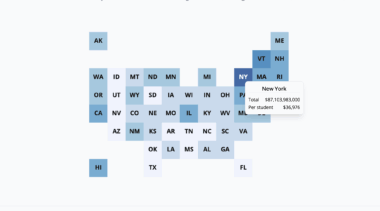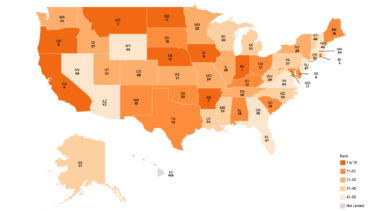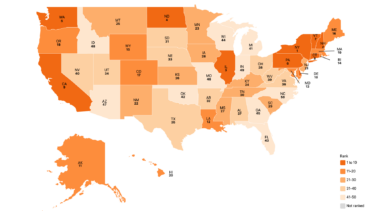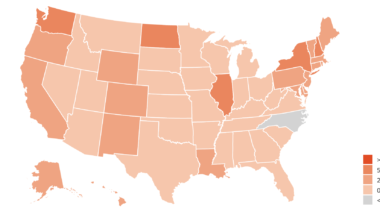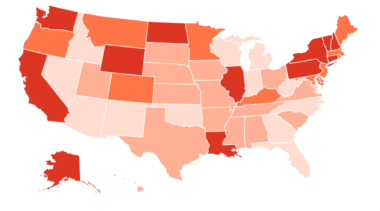Aaron Garth Smith is the director of education reform at Reason Foundation.
Smith works extensively on education finance policy and his writing has appeared in dozens of outlets including National Review, The Hill, and Education Week.
Smith graduated from the University of Maine with a bachelor's degree in business administration and earned a Master of Business Administration from Texas A&M University.
He is based in Phoenix, Arizona.
-
K-12 Education Spending Spotlight 2025: Annual public school spending nears $1 trillion
Eight states spend more than $25,000 per student: New York, New Jersey, Vermont, Connecticut, Pennsylvania, California, Rhode Island and Hawaii. Public school enrollment fell in 39 states from 2020 to 2023.
-
The cost of state hold harmless policies in K-12 education
With widespread public school enrollment losses in the wake of the COVID-19 pandemic, the financial costs of some hold harmless policies have increased exponentially.
-
Public education at a crossroads: A comprehensive look at K-12 resources and outcomes
Examining key education spending, enrollment, staffing, and student performance data over the past two decades in all 50 states.
-
Public education at a crossroads: K-12 education revenue and expenditure trends 2002-2020
Nationwide, inflation-adjusted public school revenues grew from $12,852 per student in 2002 to $16,065 per student in 2020.
-
Public education at a crossroads: Enrollment, staffing, and teacher salary trends 2002-2020
Nationwide, inflation-adjusted average teacher salaries fell by 0.6% between 2002 and 2020 with a total of 26 states seeing declines.
-
Public education at a crossroads: Math and reading outcomes (low-income students only)
Between 2003 and 2019, the average U.S. 4th grade NAEP math score for free and reduced-price lunch eligible students increased by seven points.
-
Public education at a crossroads: Math and reading outcomes (all students)
Between 2003 and 2019, the average U.S. 8th-grade NAEP reading score was flat. The average 8th-grade NAEP math score increased by four points.
-
Public education at a crossroads: Education spending data for all 50 states 2002-2020
Examining every state's K-12 public education spending, staffing and enrollment levels, teacher salaries and more.
-
Public education funding without boundaries: How to get K-12 dollars to follow open enrollment students
How to ensure state and local education funds flow seamlessly across district boundaries.
-
K-12 Education Spending Spotlight: An in-depth look at school finance data and trends
Reason Foundation’s new K-12 Education Spending Spotlight provides critical insight into key school finance trends across the country.
-
Frequently asked questions on student-centered funding
Student-centered funding puts student needs as the focus of education funding decisions.
-
The benefits of the pupil transportation policy reforms in Arizona’s SB 1630
Smaller, lower-cost vehicles would help students living in rural, geographically diverse areas of the state, but also assist urban families.
-
K-12 funding in Tennessee: A student-centered approach
By adopting a student-centered funding model, Tennessee would replace the state's outdated education finance system that lacks transparency and local control.
-
K-12 Education Spending Spotlight 2021: An in-depth look at school finance data and trends
Reason Foundation’s 2019 K-12 Education Spending Spotlight provides critical insight into key school finance trends across the country by providing policymakers, researchers, and other stakeholders easy access to K-12 education spending data in every state.
-
Fiscal Explainer: Texas Charter School Funding Analysis
Between 2015 and 2019, the inflation-adjusted funding gap between public charter schools and traditional public schools grew by about 36 percent—from $596 per pupil to $813 per pupil.
-
Modernizing School Finance in Idaho
This policy brief provides a brief overview of Idaho’s school finance system, highlights its primary shortcomings, and makes several recommendations for reform.
-
Inform: Give Stakeholders The Information They Need to Make Sound Education Funding Decisions
Financial transparency can help leaders get the most out of education dollars while shining light on their spending decisions.

